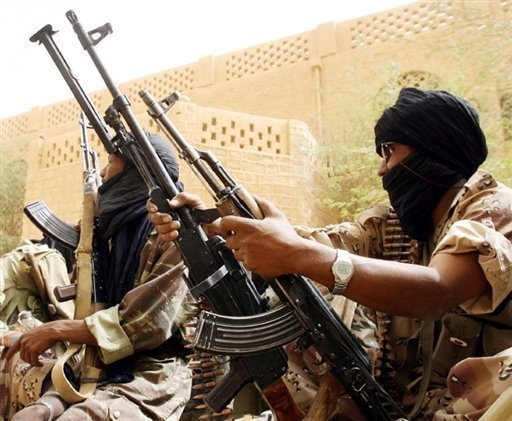Last week, the Islamic State in Syria and Iraq (ISIS) accepted a pledge of allegiance by Boko Haram, declaring the new allegiance an “expansion of the caliphate to West Africa”. As two destructive groups with very similar ideologies and ambitions, many are curious as to what an allegiance between the groups means for the future of jihadism in both affected regions.

A troubling trend of the convergence between the behaviours and actions of the two terrorist groups indicates that this allegiance may have been inevitable. As early as this past summer, Boko Haram’s leader, Abubakar Shekau, verbally announced support for ISIS in a video message. As of late, elements of Boko Haram’s video messages have begun to mimic those that are broadcasted by ISIS. Boko Haram has recently incorporated the use of the jihadist black banner in its logo, and has started to produce higher quality videos that borrow music from ISIS videos. Beheadings have become a common feature of Boko Haram’s videos, and Shekau’s language has also shifted in focus to fit more closely to the values espoused by ISIS. Much like ISIS chief Abu Bakr Al-Baghdadi, Shekau frequently speaks of the creation of his own “Islamic Caliphate” in West Africa.
The shifts in rhetoric and imagery may appear to be superficial, but the recent convergence in its approach to marketing and recruitment indicates an evolving ideology and strategy for Boko Haram. It is estimated that the group was responsible for roughly 10,000 deaths in 2014, whereas ISIS was responsible for an estimated 5,500. Boko Haram has been known for indiscriminate attacks against large civilian populations, as well as its tendency to seize territory without the intention to control or govern the area. In contrast, ISIS has demonstrated a pattern of local, targeted killings with obvious political motives. Since Boko Haram’s support for ISIS began to increase, however, the West African terrorist group has exhibited a new level of military sophistication and strategic ambitions, which has resulted in the expansion of its territorial control into large portions of northeastern Nigeria, and an increase in its presence in the surrounding nations of Chad, Cameroon and Niger.

This new allegiance is of significance to the jihadist cause, as it internationalizes a conflict that has been otherwise confined to West Africa. Both Boko Haram and ISIS benefit from heavy media coverage, which provides further opportunity for the dissemination of extremist ideologies by both groups. A merger between the two groups also gives ISIS indirect access to, and control of, a territory where it previously had no presence, and facilitates Boko Haram’s continued expansion into the African continent by way of newly accessible resources, funds, and foreign fighters. In the same audio recording in which ISIS accepted Boko Haram’s pledge of allegiance, ISIS spokesperson Mohammed Al-Adnani urged foreign fighters worldwide to consider traveling to West Africa to support Boko Haram’s efforts in the region.
The newly forged alliance between Boko Haram and ISIS offers the potential for the consolidation of a multinational terrorist force with the ability to perpetrate new and increased threats to national and regional security, economics, and social order across West Africa. Recently, a robust military coalition composed of Nigeria, Niger, Chad, Cameroon and Benin launched several successful offensives to prevent the expansion of Boko Haram beyond the Nigerian border. The African Union has also approved the establishment of a10,000 troop-strong multinational force with a mandate to “eradicate the presence” of Boko Haram. In light of the merger, these efforts, though promising, will require greater coordination and new strategic considerations to prevent any resources or funds provided by ISIS from contributing to any further expansion by Boko Haram. Goods and services exported into Nigeria and the surrounding areas will need to be monitored, and the motives of travelers to and from the region may need to be given careful consideration.
At present, the general trend follows that most existing efforts to curb the expansion of international Jihad are being directed towards the Middle East. The new ISIS-Boko Haram dynamic will require innovative efforts by the international community to contain any possible expansion by the latter group that may be motivated by this merger. While it is difficult to predict what may come of this new allegiance, the prospect for greater, and more serious, risk to international security cannot be taken lightly.




